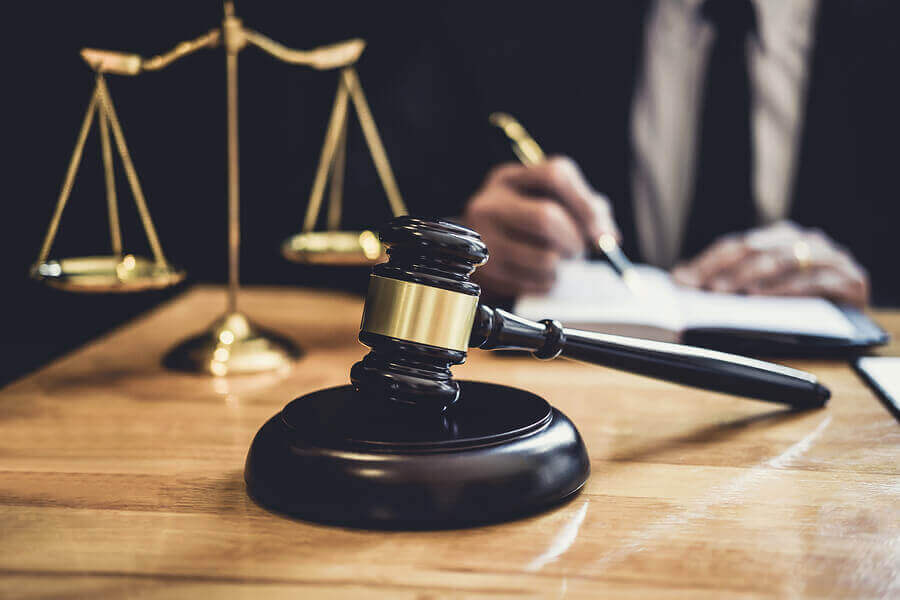Sports Lawyers: What Are Their Functions?

Sports lawyers are gaining increasing prominence, not only in the legal and sports fields but also in the media. As a specific branch of professional specialization, sports law is relatively recent. Nevertheless, lawyers have always been involved in cases related to sport.
The novelty of this specialty seems to be perfectly compatible with the rapid growth it shows in recent years. And it shouldn’t surprise us! Many people see an amazing opportunity in the chance to practice law in this profitable field. This is especially true in sports such as soccer, which captures the attention of thousands of students and legal professionals.
However, before starting a career in this area, it’s important to know the responsibilities, the field of action and the functions of a sports lawyer. In addition, we must keep in mind what knowledge and skills are essential to perform within sports law.
What do sports lawyers do?
A lawyer specialized in sports law is qualified to provide services to different actors in the sports universe. Their work isn’t limited to liaising with athletes and sports entities, public and private alike. Sports lawyers educate themselves to represent the interests of companies, societies, and individuals in the sports field.

In practice, these are some of the main functions and obligations of sports lawyers:
- To instruct, enable and participate in the negotiation and signing of sports contracts. Of course, lawyers draft these sports contracts between athletes and sports clubs, brands, sports federations, and different institutions.
- They can also contribute to the negotiation of advertising sponsorship contracts and commercial exploitation agreements. These are used to regulate the image rights of athletes, clubs and sports teams, as well as companies.
The Administrative Court of Sports is responsible for delivering justice in the different disciplines of Spain.
- First, to advise on the hiring and transfer of professional athletes between clubs, federations, and similar sports associations.
- Represent natural or legal persons. This court will also defend their rights and interests in legal proceedings. In general, these legal matters will be dealt with by a sports lawyer.
- Coordinate and carry out administrative-judicial procedures that involve national and international sports organizations. These include the Arbitral Courts and the Court of Arbitration for Sports (TAS).
- Offer professional advice in legal, labor, civil and commercial matters to different sports associations. These associations include clubs and federations, or to companies and individuals involved in this field.
- Provide legal advice regarding the employment relationship and issues related to social security. This pertains to athletes, artists and other actors within the sports universe (coaches, managers, coaching staff, managers, etc.).
What should you study to be a sports lawyer?
Obviously, sports lawyers must successfully complete a recognized law degree before specializing in sports. Then, after finishing grad school, they’ll be able to specialize in the industry they want, including sports.
To become a good sports lawyer, a professional must go beyond his knowledge of the legislation and its applicability. For example, you should be aware of everything that surrounds sanctions in sport.
What do sports lawyers need to know?
We shouldn’t forget that practicing law within the sports field requires developing skills of different natures. These common soft skills include negotiation techniques and human resources, as well as image and intellectual property rights, sports advertising and merchandising concepts.

Because of this, we recommend that as a student you start by taking small introductory courses on sports law and related topics. This will help you decide whether or not a specialization in this industry will be a good fit for you.
These types of courses usually have a shorter duration. On the other hand, these courses tend to focus on functional knowledge, as well as being cheaper than a full post-graduate degree. At the moment, you can easily find a wide variety of in-classroom and online courses.
After being sure that you want to work in the sports field, you should take a Master’s in Sports Law. In this sense, these postgraduate courses usually offer a comprehensive program. Thus, this gives students the right tools to learn key knowledge and skills in the sports industry.
Additionally, it’s highly advisable that sports lawyers demonstrate good English proficiency and have assimilated key accounting concepts.
Finally, in regard to languages, it may also be a good choice for you to learn a new one! Of course, if you’re not fluent, achieving good English skills should be your priority. Other useful languages might include Spanish, Portuguese or German. Your chosen learning path will depend on your professional path.
Sports lawyers are gaining increasing prominence, not only in the legal and sports fields but also in the media. As a specific branch of professional specialization, sports law is relatively recent. Nevertheless, lawyers have always been involved in cases related to sport.
The novelty of this specialty seems to be perfectly compatible with the rapid growth it shows in recent years. And it shouldn’t surprise us! Many people see an amazing opportunity in the chance to practice law in this profitable field. This is especially true in sports such as soccer, which captures the attention of thousands of students and legal professionals.
However, before starting a career in this area, it’s important to know the responsibilities, the field of action and the functions of a sports lawyer. In addition, we must keep in mind what knowledge and skills are essential to perform within sports law.
What do sports lawyers do?
A lawyer specialized in sports law is qualified to provide services to different actors in the sports universe. Their work isn’t limited to liaising with athletes and sports entities, public and private alike. Sports lawyers educate themselves to represent the interests of companies, societies, and individuals in the sports field.

In practice, these are some of the main functions and obligations of sports lawyers:
- To instruct, enable and participate in the negotiation and signing of sports contracts. Of course, lawyers draft these sports contracts between athletes and sports clubs, brands, sports federations, and different institutions.
- They can also contribute to the negotiation of advertising sponsorship contracts and commercial exploitation agreements. These are used to regulate the image rights of athletes, clubs and sports teams, as well as companies.
The Administrative Court of Sports is responsible for delivering justice in the different disciplines of Spain.
- First, to advise on the hiring and transfer of professional athletes between clubs, federations, and similar sports associations.
- Represent natural or legal persons. This court will also defend their rights and interests in legal proceedings. In general, these legal matters will be dealt with by a sports lawyer.
- Coordinate and carry out administrative-judicial procedures that involve national and international sports organizations. These include the Arbitral Courts and the Court of Arbitration for Sports (TAS).
- Offer professional advice in legal, labor, civil and commercial matters to different sports associations. These associations include clubs and federations, or to companies and individuals involved in this field.
- Provide legal advice regarding the employment relationship and issues related to social security. This pertains to athletes, artists and other actors within the sports universe (coaches, managers, coaching staff, managers, etc.).
What should you study to be a sports lawyer?
Obviously, sports lawyers must successfully complete a recognized law degree before specializing in sports. Then, after finishing grad school, they’ll be able to specialize in the industry they want, including sports.
To become a good sports lawyer, a professional must go beyond his knowledge of the legislation and its applicability. For example, you should be aware of everything that surrounds sanctions in sport.
What do sports lawyers need to know?
We shouldn’t forget that practicing law within the sports field requires developing skills of different natures. These common soft skills include negotiation techniques and human resources, as well as image and intellectual property rights, sports advertising and merchandising concepts.

Because of this, we recommend that as a student you start by taking small introductory courses on sports law and related topics. This will help you decide whether or not a specialization in this industry will be a good fit for you.
These types of courses usually have a shorter duration. On the other hand, these courses tend to focus on functional knowledge, as well as being cheaper than a full post-graduate degree. At the moment, you can easily find a wide variety of in-classroom and online courses.
After being sure that you want to work in the sports field, you should take a Master’s in Sports Law. In this sense, these postgraduate courses usually offer a comprehensive program. Thus, this gives students the right tools to learn key knowledge and skills in the sports industry.
Additionally, it’s highly advisable that sports lawyers demonstrate good English proficiency and have assimilated key accounting concepts.
Finally, in regard to languages, it may also be a good choice for you to learn a new one! Of course, if you’re not fluent, achieving good English skills should be your priority. Other useful languages might include Spanish, Portuguese or German. Your chosen learning path will depend on your professional path.
All cited sources were thoroughly reviewed by our team to ensure their quality, reliability, currency, and validity. The bibliography of this article was considered reliable and of academic or scientific accuracy.
- Lucía Muñóz Benito. 2018. Derecho Deportivo sancionador. Universidad de La Rioja. Extraído de: https://biblioteca.unirioja.es/tfe_e/TFE004020.pdf
- Gobierno de España. 2019. Código de Derecho Deportivo. Extraído de: https://www.boe.es/legislacion/codigos/codigo.php?id=103_Codigo_de__Derecho_Deportivo_&modo=1
This text is provided for informational purposes only and does not replace consultation with a professional. If in doubt, consult your specialist.








